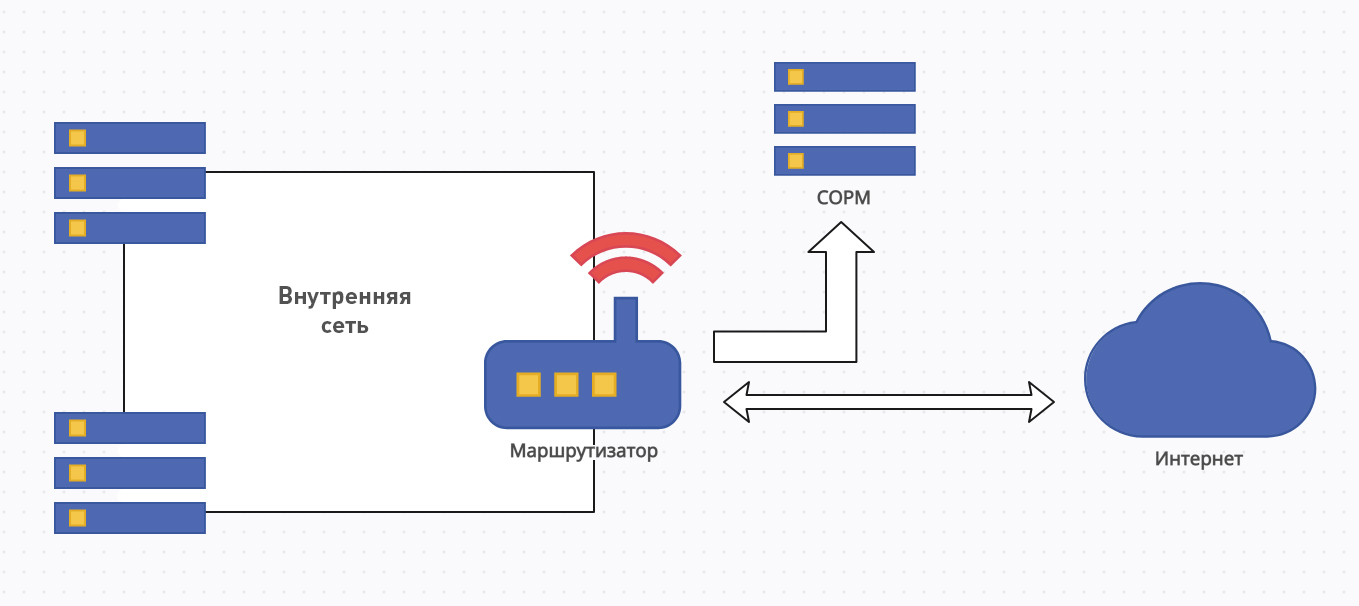SORM Rental Service
Telecom operators are required to provide government agencies with information about users and the communication services they use. To comply with these obligations, companies may need to implement a SORM system in their network—a technically complex process that demands significant time and effort. Cloud4Y is ready to help solve this task quickly.
We provide a SORM outsourcing service package, enabling telecom operators to align their communication networks and organizational structure with the regulatory framework of the Russian Federation (Ministry of Digital Development Order No. 573) in the SORM-3 format.
Our cloud infrastructure is equipped with SORM-2 and SORM-3 hardware, as well as data storage resources compliant with the Yarovaya Law.
What is Included in the Service?
- Hardware & software rental – Use our SORM system instead of buying your own.
- Your own SORM expert – They’ll find the best solution and guide you through setup.
- Clear contract – Outlines every step, from setup to approval.
- Testing & sign-off – We will test together and confirm everything works.
- Ongoing support – Help for as long as you use our service.
Extra (if needed): Equipment to block banned websites, as required by law.
Learn more
Under Russian law, telecom operators must block user access to prohibited sites listed in the registry.Service Connection Requirements
- Telecom operator license
- Communication line connecting the infrastructure to our equipment
| Нн.п | SORM-2/3-СХД-100 | SORM-2/3-СХД-600 | SORM-2/3-СХД-1.0 | SORM-2/3-СХД-2.0 |
| Bandwidth | Up to 100 Mbps | Up to 600 Mbps | Up to 1 Gbps | Up to 2 Gbps |
| Installation fee | 358 000 ₽ | 500 000 ₽ | 689 000 ₽ | 962 000 ₽ |
| Rent | 30 000 ₽ per month | 55 000 ₽ per month | 65 000 ₽ per month | 85 000 ₽ per month |
Installation Fee
In addition to monthly payments, SORM outsourcing includes a one-time installation fee—a fixed cost for connecting the equipment to the client’s infrastructure.
The installation fee covers:
- Connection to the data transmission network;
- Integration of technical and software systems containing the telecom operator’s subscriber databases and records of provided services.
What is SORM?
SORM (System for Operative Investigative Activities) is designed to ensure state and citizen security. It enables selective monitoring of intercepted communications by the Federal Security Service (FSB). Its development involves the State Committee for Communications, the Ministry of Digital Development, and Russian Government decrees.
Why is SORM Needed?
This system monitors Russian internet users via a special device connected to the telecom operator’s equipment, managed by security agencies.

SORM is essential for national and citizen security, allowing the FSB to monitor identified or potential threats, as well as individuals posing risks. Similar systems exist in other countries. FSB agents require a valid court order to access SORM equipment.
By law, all telecom operators and providers operating in Russia must implement SORM — failure to comply may result in license revocation.
Differences Between SORM-2 and SORM-3
SORM-3 provides comprehensive user data (real-time and historical, up to 3 years). SORM-1 & SORM-2 intercept user communications, while SORM-3 stores metadata and traffic statistics (not the traffic itself) — reducing storage volume.
Over time, SORM-3 builds user profiles, requiring large storage systems and deep traffic filtering.
SORM-3 network equipment communication channels must meet strictly regulated requirements. The system's functionality must be capable of linking network packets to specific user identifiers, including email and messaging app logins, phone numbers, IP addresses, geolocation data, etc.
Legacy SORM-2 equipment cannot perform these functions, as it was designed for different purposes..
Key Differences Summarized:
- Purpose: SORM-2 enables traffic interception. SORM-3 builds subscriber/organization databases.
- Targets: SORM-2 monitors data transmission. SORM-3 manages database access.
- Mechanism: SORM-2 uses provider-side interception devices. SORM-3 works with user databases.
- Regulation: SORM-2 follows the "On Information, IT, and Data Protection" Law. SORM-3 complies with Ministry Order No. 573.
SORM-3 Functions:
- Collects and updates data.
- Provides instant access to stored information.
- Retains data for up to 3 years.
- Grants exclusive access to law enforcement.
- Enables filtered data retrieval.
- Supports visualization and analysis tools.
- Allows scaling and backup.
- Operates via a specialized control panel (multi-console solution).
Yarovaya Law Requirements
Telecom operators must store user call and message data in Russia — either on their own servers or via another operator (with FSB approval).
Data transmission & telematic service providers must store all electronic communications for 30 days.
Call logs and messages must auto-delete after 6 months; metadata (transmission records) must be kept for up to 3 years.
Under the proposed Ministry of Digital Development order, internet companies must store and provide the following upon request:
- User details: Name, alias, birthdate, address, passport data, languages spoken, relatives.
- Communication content: Text, audio, video, email.
- Activity logs: Login/logout times, client software used.
